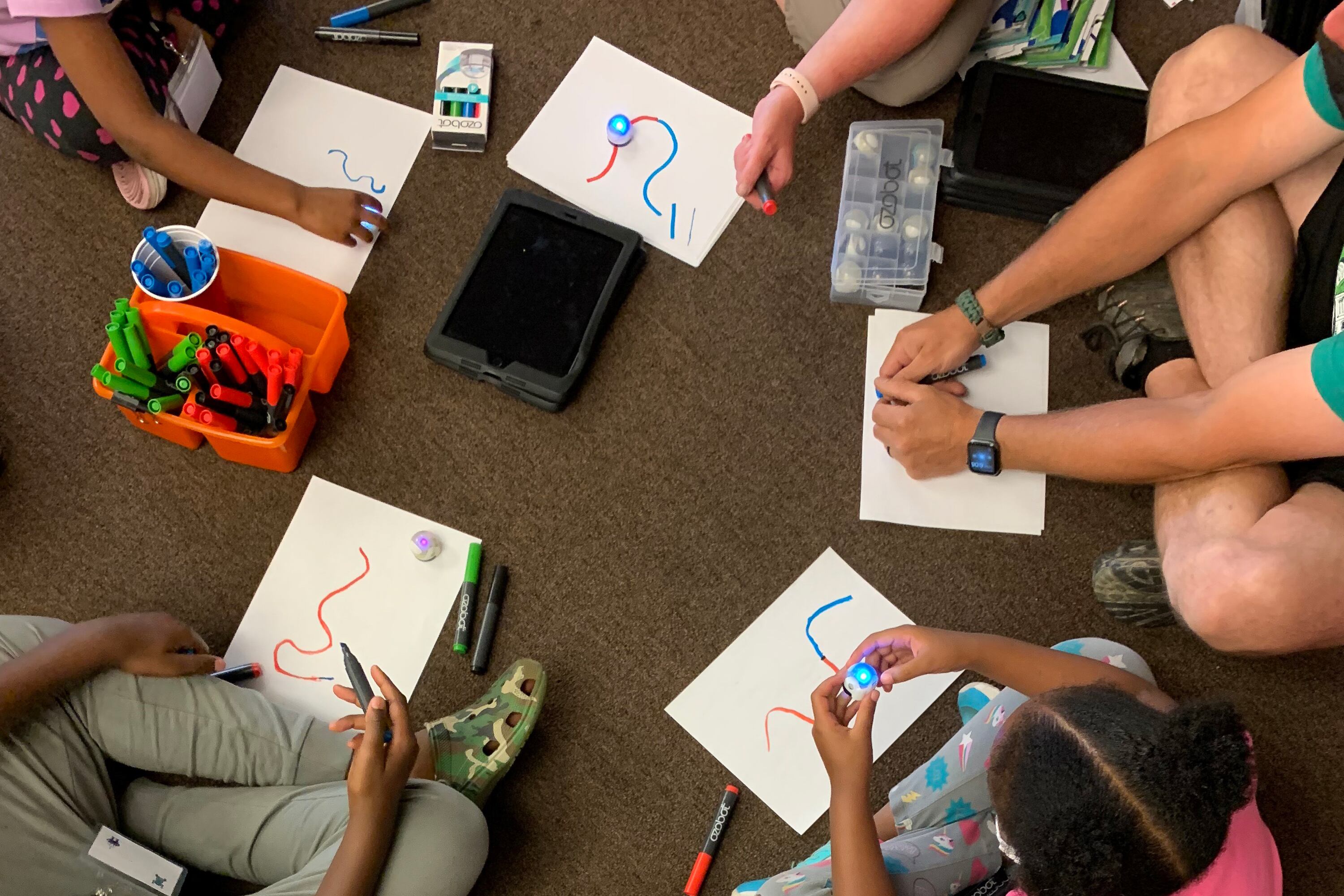Tutor Rita Novak remembers the time when she managed to connect with a child in a homeless shelter. The girl usually liked to dance and avoid schoolwork. But Novak talked patiently about the task, tweaked the assignment, and the child gradually started to come around.
Novak thinks giving her attention and meeting her needs did the trick.
“It makes you feel good when that connection does happen,” the 76-year-old retired teacher said.
Novak is among scores of volunteers working with School on Wheels, an organization that brings tutors to unhoused students. After a year of working virtually with them, the group returned to schools and more recently to shelters, seeking to replicate that human connection that sparked Novak’s distracted student.
Karen Routt, who directs the group’s work in schools, said the pandemic created challenges. For one, the organization struggled to locate students.
Staff members combed apartment complexes and motels in search of their students, sometimes conducting tutoring sessions in parking lots. They read to children outdoors while socially distant, conducted tutoring sessions via Zoom, and in Washington Township created a learning pod for virtual studies. But safety measures kept volunteers from meeting with children face to face.
Partner schools, which normally identify unhoused families and refer children to School on Wheels, lost touch with students in unstable housing — as did many school districts nationwide during the pandemic. Because of pandemic precautions and public fears, homeless shelters remained below capacity, further shrinking the number of families referred to the program.
The nonprofit’s normal caseload of 400 students dropped to just over 200.
Many families lacked reliable internet, Routt said. Parents who spoke little English struggled to connect younger students with Chromebooks and other devices.
Now School on Wheels has revived in-person summer tutoring for more than a dozen homeless students in Indianapolis. The program offers three hours a week of small-group tutoring to help students who live at Salvation Army Barton Center get on track with their schoolwork.
Besides that summer program, the organization also has been supporting regular school partners this summer.
Volunteers tutor students in nine Indianapolis schools and eight shelters throughout the school year. At the same time, School on Wheels helps teachers and parents develop learning plans and goals.
Even before the pandemic, homeless students were less likely to be promoted to the next grade and less likely to pass state assessments, while being more likely to be suspended or expelled and to earn a lower-quality high school diploma.
As some school districts struggled to provide technology and other resources for all their students during the pandemic, learning gaps among students most likely widened.
School on Wheels tries to bridge that. Its 20 staff members and scores of trained volunteers — ranging from teens to retired teachers— serve as tutors, the main liaison with students.
Even at full capacity, School on Wheels can serve only a minuscule portion of Indiana’s homeless students. The need has likely grown since 2018-19, the latest data available from the Indiana Department of Education, when approximately 16,380 Indiana students were experiencing homelessness.
More than one-quarter of those were in Marion County, which had 14.5% of public school students. But while Indiana has a much lower homeless student population rate than do neighboring Midwestern states, according to a 2020 Indiana Youth Institute and School on Wheels report, in 2017 Indiana ranked 34th in the U.S. for identifying students who are homeless.
Homeless students are disproportionately Black and are overrepresented in special education.
School on Wheels operates on a $1 million budget. It recently received $270,000 from an Indiana Department of Education Student Learning Recovery Grant. The two-decade-old group seeks to expand.
Because School on Wheels leaders believe that literacy is key to helping a student who may be falling behind, they’ve focused on reading and writing, as well as arts and performance in pre-K to 12th grade.
Tutors check reading comprehension and knowledge through daily assessments, and survey students at the end on if they’ve learned and had fun.
This year, the group has added robotics.
At the shelter, students from pre-K to ninth grade build dexterity with Playdoh, create videos and podcasts, and read articles about how robots are used in NASA, in industry, and in medicine and about careers in those fields.
The program contracts with two Indianapolis Public Schools science teachers to teach coding for robotics weekly to older students. Younger students work with iPad apps to learn how to control a robot.
An Asante Children’s Theatre staff member produces children’s performances, while volunteers try to keep students engaged. This year, they are creating a robot character while helping students develop storytelling skills.
Brittany Bayles, the organization’s education manager, said running a program in the downtown area is important because many programs come with a fee. School on Wheels is free.
“We’re able to really connect with those children and families over the summer,” Bayles said. “It was huge for those families to be able to have somebody in the building working with them and having that engagement to get them back to normal as much as possible.”






